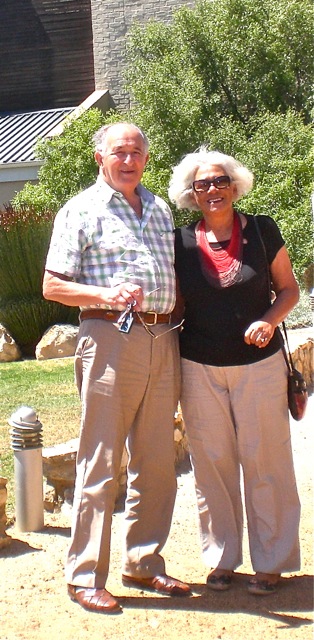As an annual visitor to South Africa I am often asked, “will the budding democracy survive or will it go the way of other African dictatorship kleptocracies?”
For starters of course it can be said that all democracies, even America’s in an election year, are works in progress.
But beyond the obvious it is accurate to assert that the model post-apartheid constitution and bill of rights in the early 1990s established a sound foundation. The media and courts remain vibrant and even courageous, African National Congress party discipline is improving, the government is being held accountable for corruption and lack of basic service delivery, and a growing vocal parliamentary opposition is emerging. The grass roots civil society—planted and thriving from the liberation struggle—is active in movements such as Kairos Southern Africa.
There is much to commend the South African enterprise on, in spite of the ongoing challenge with criminal “informal distribution of wealth” because of the persistent gap between rich and poor.
Social activists around the world committed to justice can be encouraged by the "off-camera" societal mobilizing work that continues in the young democratic South Africa. Thousands of little-known citizens are making significant contributions in building the framework and the spiritual force for change. They continue to bear witness in post-apartheid South Africa to their own and countless other countries.
 I discovered a great example of this while driving to a seminar with a friend of 25 years, an electrical contractor named Bernard Dudley. Bernie rather incidentally pointed out his legacy as we passed a large “township.” He and his wife, Ruth (pictured here), helped break the color lines in segregated housing caused by the so-called “Group Areas Act.” The vicious Act resulted in the dispossession and removal from “white areas” of millions of “non-white” people. Unknown to us, Dudley—against all odds—was a pivotal figure in bringing electrical power to millions of squatter camp and township residents.
I discovered a great example of this while driving to a seminar with a friend of 25 years, an electrical contractor named Bernard Dudley. Bernie rather incidentally pointed out his legacy as we passed a large “township.” He and his wife, Ruth (pictured here), helped break the color lines in segregated housing caused by the so-called “Group Areas Act.” The vicious Act resulted in the dispossession and removal from “white areas” of millions of “non-white” people. Unknown to us, Dudley—against all odds—was a pivotal figure in bringing electrical power to millions of squatter camp and township residents.
Almost in every informal location and new housing scheme, even in the most rural areas, one sees the evidence of his genius and vision. His work produced easily accessible "plug-in" power poles with safety-sheathed lines and cell phone-like "pay-as-you-go" installed meters. As a result:
- The birth rate has been reduced, health has been improved (especially for AIDS-infected women and children).
- Poisonous coal smoke from cook stoves and heaters has all but disappeared. The environment has cleared countrywide.
- Due, in part, to TV safe-sex promotion 95 percent of pregnant women are covered by prophylaxis, cutting mother–child HIV transmission to 3.5 percent.
- Child morality has been reduced from 57 per 1000 in 1991 to 38 per 1000 in 2011.
Dudley developed the patents for this electric technology, but 25 years ago he was not allowed to sit in the meetings to argue its wisdom, negotiate its use, or benefit from his labor. He is of mixed race. But justice has been served—the patents the apartheid regime had stolen from him have been returned to the inventor.
But what if he had grown weary and given up?
South Africa’s ability to inspire is especially appropriate during the Easter Season when we focus on Resurrection power to correct the death grip of daily bad news and seemingly insurmountable challenges.
The Lectionary Gospel this week is the Matthew 3 account of John the Baptist reminding the religious leaders of the day to “Produce fruit in keeping with repentance … every tree that does not produce fruit is cut down and thrown into the fire”.
Faithful people of all backgrounds in South Africa are producing fruit resulting from repentance from the “bad old days” policies and inhumanity. Certainly, it is not yet perfect but persistence is bringing an encouraging harvest, assuring that the country will not be “thrown into the fire” of so many other developing nations.
Once again I can testify to the certainty of this transcendent Kairos reality. As Johan Wolfgang von Goethe said in 1932,
“Concerning all acts of initiative and creation there is one elementary truth, the ignorance of which kills countless ideas and splendid plans. The moment one definitely commits oneself then Providence moves too. All sorts of things occur to help one that would never otherwise have occurred. A whole stream of events issues from the decision raising in one’s favor all manner of unforeseen incidents and meetings and material assistant, which no would have dreamt. Whatever you can do, or dream, you can begin it. Boldness has genius, power and magic. Begin it now.”
If you want to witness a place where boldness linked with Resurrection power is making an enormous difference keep South Africa and its people in your sights and prayers.
Tom Getman travels to South Africa annually continuing to follow up with anti-apartheid activists he met while working on legislation in the Senate (1977-85) and with World Vision (1985-2009).
Got something to say about what you're reading? We value your feedback!
